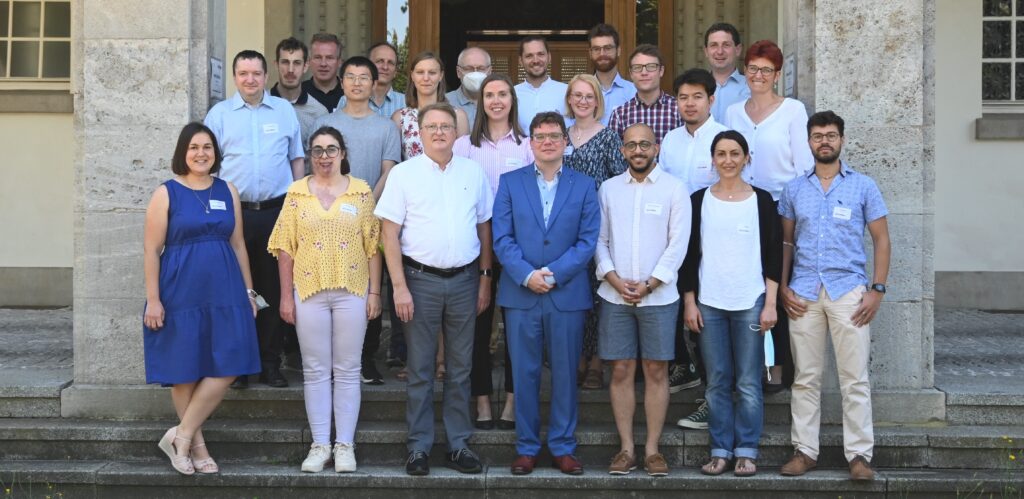19 – 20 July 2022 in Darmstadt, Germany
On Tuesday 19 July 2022, the fourth General Assembly (GA) of the SIMBA project took place in Darmstadt, Germany. The GA was followed on Wednesday 20 July by the SIMBA first Advisory Board (AB) Workshop.
On Day 1, Tuesday 19 July, the SIMBA partners could finally after almost 18 months after the start of the project meet in person at the fourth General Assembly (GA). The GA was held at the nicely located Jugendstil Georg-Christoph-Lichtenberg-Haus and started with a welcome, including an interesting introduction of the city of Darmstadt and the TU Darmstadt, by the coordinator Prof. Dr. Riedel. The day was further filled with work packages presentations providing an overview of the status of the project at M19 (July 2022). In the evening a nice dinner was organized, which also included some of the Advisory Board members who would join the next day.
On Day 2, Wednesday 20 July, the first Advisory Board workshop was held. Within the SIMBA project a strong Advisory Board (AB) has been established, consisting of battery producers Leclanche, VARTA and GAZ, battery end user EnBW and policy regulator ENEA. The role of the AB is to be involved in the project through three workshops and as such exchange knowledge on what is expected from Sodium-Ion batteries (SIBs) and strengthen the final SIMBA results.
The first AB workshop was divided into two blocks. In the morning, three SIMBA partners presented an overview of the SIMBA developments versus the State-of-the-Art (SoA), the challenges ahead and the future pathways.
- Maidar Zarrabaite (KIT-HIU) opened the morning session with a very interesting presentation on the SIMBA materials (anodes, cathodes, and electrolyte). She showed the progress of SIMBA in developing very promising anode and cathode materials which soon could compete with current (Li-ion) materials and cells.
- Ivana Hasa (WMG) presented a strong story on how the SIMBA Na-ion cells are a drop-in alternative for current Lithium-Ion Battery (LIB) technology and applications and how SIBs may be fabricated using the same manufacturing methods and cell formats as LIBs.
- Yazid Lakhdar (UBham) closed the morning session with an interesting presentation on how SIMBA’s safety and transport standards and Recycling Steps could influence and improve current battery regulations and provide new designs for disassembly.
In the afternoon, the AB members and SIMBA partners were divided in three working groups. Each working group discussed the three presentations through three leading questions. The end results provided as output new insights, new questions, and new discussion points to enhance the further development of thew SIMBA materials, cells, and recycling steps. In the next months, more concrete output of the 1st AB workshop will be published on the website and the third newsletter.
For any question, please contact Arjo Roersch van der Hoogte (a.rvdh@uniresearch.com)
